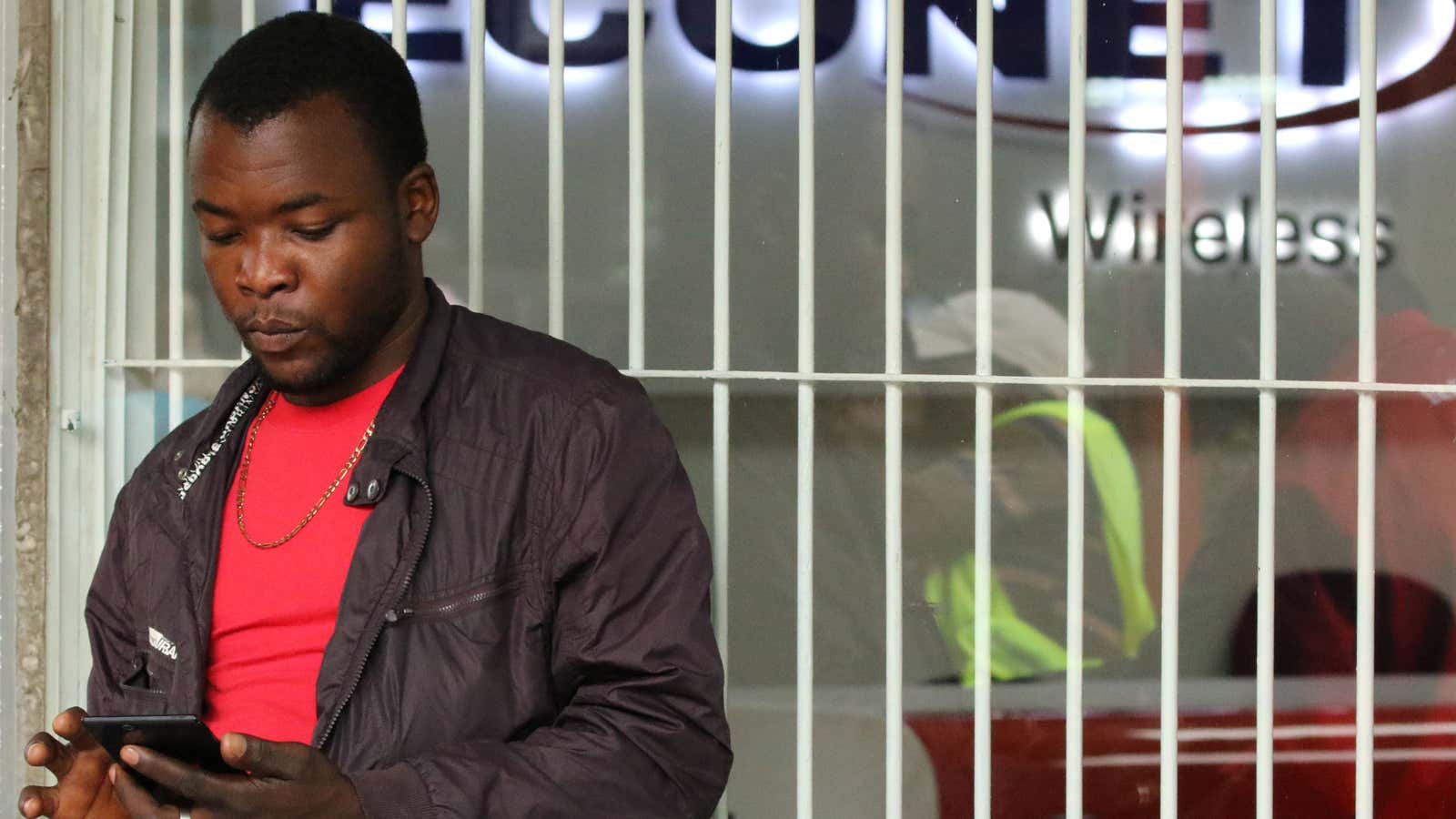Being a mobile phone user in Ethiopia comes at the risk of receiving nearly 120 spam texts per month—the highest rate globally.
And it’s not just Ethiopia as South Africa and Kenya also rank in the top three for countries where users receive the most spam texts across the world, data from Truecaller, the Stockholm-based caller identification app, shows. In total, African countries make up nine of the top 20 ranked countries for spam texts received. The rankings are based on data on spam texts received by users between Jan. 1, 2019 and Oct. 30, 2019.
Users in Nigeria, Africa’s largest mobile market, receive around 65 spam texts monthly despite a regulatory clampdown in 2016 allowing users to activate “do not disturb” features to block spam texts. But, as Quartz Africa reported, a key flaw in the regulation allowed telecoms operators, who are major spammers themselves, argue that they were exempted.
The spamming isn’t limited to texts as mobile phone users on the continent are also susceptible to receiving spam calls. Three countries—South Africa, Nigeria and Egypt—all feature in the top 20 ranked countries in that regard but the source of spam calls vary in each of those countries.
While telecoms operators account for the most spam calls in Egypt (74%) and Nigeria (85%), in South Africa, scams are the leading source of spam calls. The scams range from phony job offers to tech support fraud soliciting sensitive bank account information. Telecoms operators account for only 10% of spam calls in South Africa. Regardless of source however, the rates of spam calls has increased in all three countries over the past year.
The high spam rates across many of Africa’s fast-growing mobile user markets have seen Truecaller grow popular given its call blocking and identification features. With Truecaller users granting it access to their contacts list among a range of other permissions, the company has aggregated a database of contact details from millions of users. As such, when a Truecaller user receives a call from an unsaved number, the app can match that number with a name from its vast database. In exchange for free use, the app leverages its vast user base for mobile advertising.
But the app itself has also courted controversy and data privacy questions over its methods. In Nigeria, where Truecaller has around 2.9 million active users, local regulators are investigating it for “potential breach of privacy rights of Nigerians.”
Sign up to the Quartz Africa Weekly Brief here for news and analysis on African business, tech and innovation in your inbox
